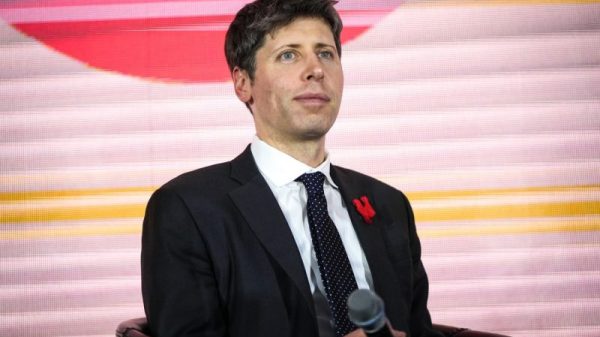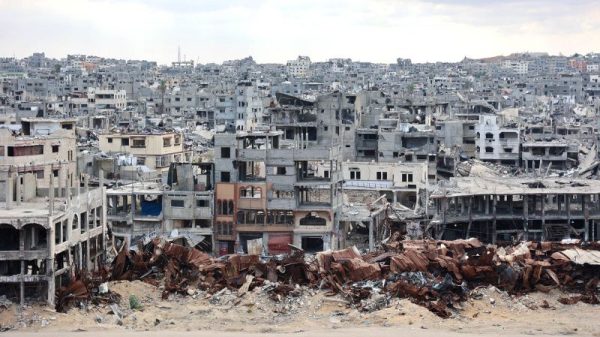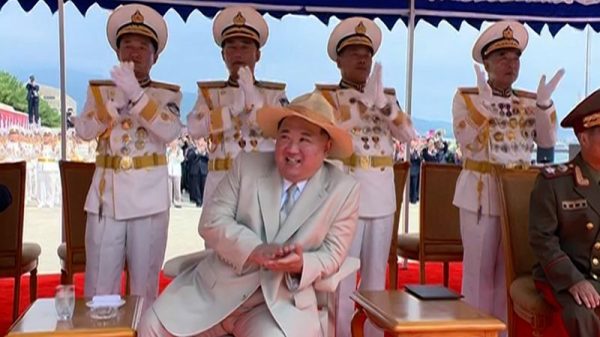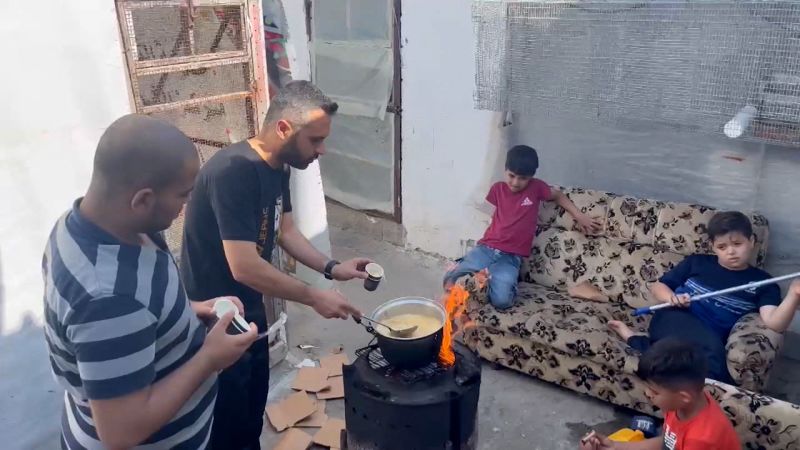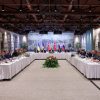The entire population of Gaza is “being dehumanized,” the chief of the main UN agency operating there told the UN Security Council Monday, as pressure intensified on the besieged strip with Israeli Prime Minister Benjamin Netanyahu ruling out a ceasefire, saying “this is a time for war.”
Philippe Lazzarini, commissioner general of the UN Relief and Works Agency (UNRWA) told the Security Council that thousands of children killed in Israeli airstrikes in Gaza in the past three weeks “cannot be collateral damage.”
Major UN agencies are calling for a humanitarian ceasefire to allow deliveries of aid for more than 2 million civilians trapped with scarce supplies of food, water and medical equipment, and for the safe release of 240 hostages that Israel believes are being held by Hamas, the militant group that controls the enclave.
“An immediate humanitarian ceasefire has become a matter of life and death for millions,” Lazzarini said. The director of the UN Office for the Coordination of Humanitarian Affairs (OCHA), Lisa Doughten, told the Security Council that the “scale of the horror” being experienced by Gazans is “hard to convey.”
“We simply do not have enough essential supplies to provide for the survival of internally displaced people at this scale,” Doughten said.
However, Israeli Prime Minister Netanyahu made clear on Monday that Israel would not agree to a ceasefire, as it responds with unrelenting force to Hamas’ October 7 terror attacks, which killed 1,400 people, mostly civilians, and saw hundreds taken hostage.
Drawing parallels to the United States’ position after Pearl Harbor in 1941 and the September 11 attacks in 2001, Netanyahu said that while the Bible says there is a time for peace, “this is a time for war.”
“Calls for a ceasefire or calls for Israel to surrender to Hamas, to surrender to terrorists, surrender to barbarism, that will not happen,” he said.
Here’s the latest:
IDF offensive intensifying
The IDF said it attacked hundreds of Hamas targets overnight. IDF spokesperson Rear Adm. Daniel Hagari said Tuesday that “in combined and coordinated attacks by the ground and air forces, terrorists were eliminated.”
Videos released by the IDF on Tuesday morning show Israeli soldiers on the ground in Gaza, progressing on foot and in tanks through rural areas as well as in what appears to be a significantly war-damaged urban district.
IDF forces struck “approximately 300 targets” over the past day, including military compounds inside underground tunnels it said belonged to Hamas.
Despite the intensified IDF ground operation, Hamas continued to fire rockets from Gaza. Alarms indicating incoming fire were activated in a number of areas around the Gaza perimeter overnight and early Tuesday.
The Israeli military said Monday its troops killed four prominent Hamas operatives as part of its expanded ground operations in Gaza.
Meanwhile, a Hamas spokesperson said Israel was not successful in entering Gaza “except in some limited areas” and described the humanitarian situation in the enclave as “disastrous.”
The reporter, who was at the hospital on Tuesday morning, counted 44 bodies in the morgue tent being prepared for burial.
The other casualties were killed in airstrikes Monday afternoon on two homes and a wedding hall sheltering residents displaced from northern Gaza, according to Al Dikran.
Dozens of aid workers, journalists killed
Israel’s bombardment of Gaza has killed at least 8,260 people, mostly civilians, according to the Palestinian Ministry of Health in Ramallah, which draws the information from the Hamas-controlled enclave. More than 70% those killed are from vulnerable populations, including children, women and elderly individuals, the ministry said Monday.
Among the dead are 64 UN aid workers, the highest number of UN aid workers killed in a conflict anywhere in the world in such a short period of time, according to UNRWA’s Lazzarini.
The most recent death was a man called Samir who was killed alongside his wife and eight children, Lazzarini told the UN Security Council.
“Those who are alive, have, for the most part, lost relatives, friends, neighbors and are displaced like the majority of Gazans,” he said, adding that despite the threat to their lives, they continue to “work tirelessly.”
The conflict has also been the “deadliest period” for journalists covering Israel and Gaza since records began in 1992, according to the Committee to Protect Journalists (CPJ).
At least 31 journalists have been killed since October 7, including 26 Palestinians, four Israelis, and one Lebanese, the CPJ said, adding that it is investigating “numerous unconfirmed reports” of missing journalists and others who may been killed, detained, injured, or threatened.
Speaking before the UN Security Council Monday, the Palestinian Authority’s Foreign Minister Riyad Al-Maliki said, “2.3 million Palestinians in Gaza face death every day and every night” and pleaded with the council to “save them.”
“Look at them as human beings. You cannot look only at one side and ignore this tragic humanity completely,” Al-Maliki said.
Hospitals bear the brunt
Numerous hospitals in Gaza have borne the brunt of airstrikes and shelling, according to aid groups and health workers.
In a social media post early Tuesday morning, the Palestine Red Crescent Society said the Tal Al Hawa neighborhood of Gaza City, in which the Al-Quds hospital is located, was under heavy “artillery and airstrikes.”
“The building is trembling,” and those sheltering inside the hospital are “experiencing fear and panic,” the PRCS said.
The organization said over the weekend that Israeli airstrikes have “caused extensive damage to hospital departments and exposed residents and patients to suffocation” at Al-Quds and accused Israel of “deliberately” launching airstrikes “directly next to” the facility in order to force an evacuation of the hospital, the second-largest in Gaza City.
The facility is treating hundreds of patients, while some 12,000 internally displaced civilians are also sheltering there, the agency said.
New hostage video
Hamas on Monday released a short video showing three women who are believed to be captives held by the Palestinian militant group since its October 7 attack.
The women are seated in plastic chairs facing the camera, while one addresses Netanyahu directly with increasing fury, demanding Israeli leaders to “free us all.”
IDF spokesperson Hagari said Hamas was engaging in “mind games” by releasing the footage of the women.
Talks involving the US, Israel, Qatar, Egypt and Hamas are underway to get a group of hostages out of Gaza, a task that sources say has been further complicated by Israel’s expansion of its ground operations.
One hostage – a female Israeli soldier – was rescued Monday during ground operations in Gaza, the IDF said.
“Based on intelligence” the Israeli special forces went into northern Gaza knowing her whereabouts and rescued her, Conricus said, adding that she is “well mentally and physically,” and reunited with her family.
Meanwhile, Shani Louk, a 23-year-old German-Israeli woman who was abducted from the Nova music festival and taken to Gaza has been declared dead, Israel’s Foreign Ministry said Monday.
This story is developing and is being updated.









